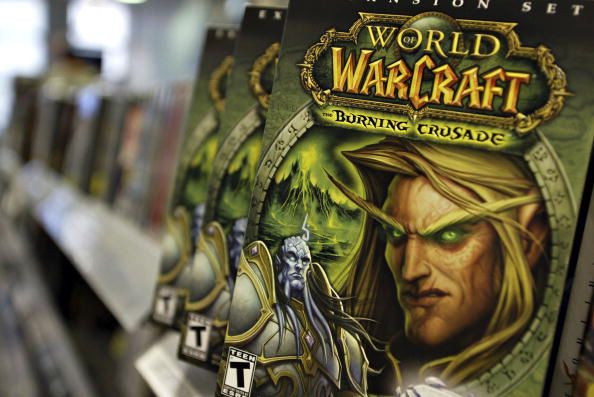NetEase Inc. and Blizzard Entertainment Inc. plan to end their 14-year partnership after January, depriving the Chinese firm of a major revenue source and suspending service for some of the country’s most popular games. NetEase shares plunged.
(Bloomberg) — NetEase Inc. and Blizzard Entertainment Inc. plan to end their 14-year partnership after January, depriving the Chinese firm of a major revenue source and suspending service for some of the country’s most popular games. NetEase shares plunged.
The Hangzhou-based publishing giant and Activision Blizzard Inc. subsidiary failed to agree on an extension to their long-running collaboration, which had encompassed famed franchises like StarCraft, Diablo, Overwatch and World of Warcraft to Chinese players. Blizzard will suspend most online game services in mainland China from Jan. 23, the US company said on Wednesday. Game sales will also halt in the coming days.
Beyond financial terms, key sticking points to the NetEase extension were ownership of intellectual property and control of the data of millions of players across China, people familiar with the discussions said. The people spoke on condition of anonymity because the talks weren’t public.
NetEase fell as much as 14% in Hong Kong after the announcement, its biggest intraday fall in more than a year, amid a wider selloff among Chinese tech firms.
Growing political tensions between the US and China have made user data a thorny issue. Short-video platform TikTok, run by China’s ByteDance Ltd., has been criticized by American politicians as a national security threat and is having to show a firewall between its US users and any China-based operations.
Originally signed in 2008 and last renewed in 2019, the distribution accord has been fruitful for both companies, feeding NetEase with globally recognized hits and giving Activision a gateway into the world’s biggest PC and mobile gaming arena. China contributed at least 3% of Activision’s net revenue in 2021 and is a significant driver of future growth. It accounted for over $400 million in esports revenue last year and more than 400 million fans. Blizzard has several competitive gaming organizations, such as the Overwatch League, that include Chinese teams.
Signs of a rift between the two sides emerged in the summer when they scrapped plans for a World of Warcraft smartphone game that had been in development for three years. NetEase disbanded a team of more than 100 developers tasked with creating content for the title. Activision warned in its earnings release this month that “a mutually-satisfactory deal may not be reached” for extending its licensing agreements in China.
Without finding an alternative partner, Activision is unlikely to be able to continue its China business. It’s unclear if the company has engaged in negotiations with domestic leader Tencent Holdings Ltd. or another local distributor.
China’s internet sector has been radically reconfigured in recent years by a broad government crackdown that put stricter limits on gaming time for youths and halted licensing of new games for months. Still, NetEase was this summer able to successfully release Diablo Immortal, a mobile role-playing game tapping one of Blizzard’s prized assets. Players will still be able to play Immortal in China after January because that game is subject to a separate long-term deal.
Collaboration with China’s big two of game publishing, NetEase and Tencent, has been the most reliable way for foreign companies to enter and stay in the Chinese market. Nintendo Co., for instance, uses Tencent as its local distributor for the Switch console and software. Even with Tencent’s help, however, Epic Games Inc. last year gave up on its multiyear effort to bring its best-known game, online shooter Fortnite, to the market after failing to get regulator approval.
–With assistance from Cecilia D’Anastasio.
(Updates with share action from the first paragraph. A previous version was corrected to remove reference to Warcraft in headline)
More stories like this are available on bloomberg.com
©2022 Bloomberg L.P.











